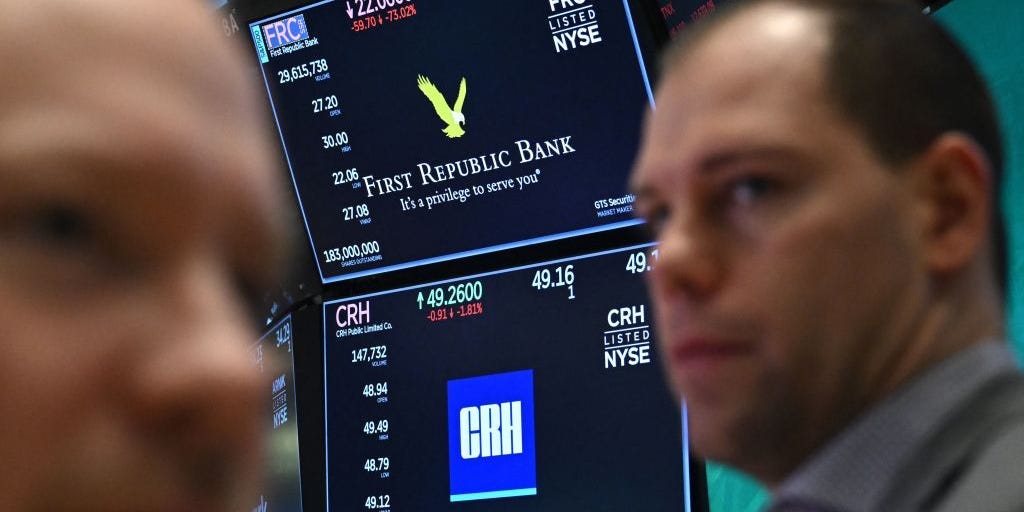Executives at First Republic Bank and Silicon Valley Bank sold stock right before the banking crisis.First Republic’s chief risk officer sold shares two days before the Silicon Valley Bank implosion.President Joe Biden called on Congress to allow regulators to claw back bank executives’ compensation following the collapse. Loading Something is loading.
Thanks for signing up!
Access your favorite topics in a personalized feed while you’re on the go.
Executives at First Republic Bank and Silicon Valley Bank sold stock right before the crash of their respective shares.
Silicon Valley Bank CEO Greg Becker sold $3.5 million worth of stock on February 27, nine days before the bank announced a big loss from selling a portion of its bond portfolio, setting off a domino effect that led to a run on its bank and several others.
According to SEC filings, Becker’s timely stock sale was tied to the exercise of options and part of a rule 10b5-1 trading plan that was put into place on January 26, about two months before the bank’s downfall. In other words, the transaction was pre-scheduled months in advance, meaning it was likely nothing more than great luck.
Becker sold his stock at $105.18 per share. Today, SVB stock remains halted but is essentially at zero after Silicon Valley Bank was taken over by the FDIC and SVB Financial filed for bankruptcy.
First Republic Bank executives also managed to sell stock right before the crash. According to a report from The Wall Street Journal, First Republic’s chief credit officer sold shares on March 6, two days before Silicon Valley Bank imploded and dragged down shares of other regional lenders.
Meanwhile, the First Republic CEO James Herbert II has sold $4.5 million worth of shares since the start of the year. All-in, insiders at First Republic Bank sold about $12 million in stock in 2023 at an average price of just below $130 per share. Today, shares of First Republic Bank trade 81% lower at $25.12.
A spokesman for Herbert told the Wall Street Journal that the stock sales were consistent with his annual estate planning.
First Republic is not required to report insider sales to the Securities and Exchange Commission due to an exemption for some banks that goes back to the Securities Act of 1933. Instead, it reported the trades to the FDIC, and self-reported the trades on its website.
On Friday, President Joe Biden called on Congress to put new measures in place that would allow regulators to claw back executives’ compensation.
“When banks fail due to mismanagement and excessive risk taking, it should be easier for regulators to claw back compensation from executives, to impose civil penalties, and to ban executives from working in the banking industry again,” Biden said.
